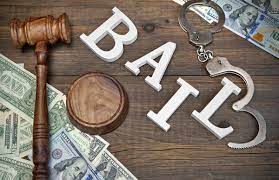Over 70% of property managers perform property inspections, leases, and advertising.
If you work as a property manager, you’re responsible for the overall well-being of a property and its tenants. This includes collecting rent, making repairs, and resolving tenant complaints.
You may also provide legal advice to landlords and tenants. And you’ll need to be detail-oriented and organized to keep up with everything on your plate.
Managing rental properties takes time and effort. But with hard work and efficiency, it can also be very rewarding.
If you are looking for property management tips for landlords, this short and simple guide is for you.
1. Check Local Landlord-Tenant Laws
Before you manage properties, it’s important to know your local landlord-tenant laws. This can help you avoid legal issues and disputes with tenants.
Check with your local government to see what laws apply to you as a landlord. You can also find information about your local community’s housing laws by contacting your city or county government offices.
2. Screen Your Tenants Thoroughly
Screening tenants is one of the most important things you can do as a landlord.
Thoroughly check a potential tenant’s credit report, criminal history, and eviction history before signing a lease agreement. Screening tenants will help you avoid bad renters who may damage your property or skip out on rent payments.
If you do not screen your tenants, you could end up with a bad tenant who causes problems for both you and other tenants.
3. Keep Accurate Records
Having excellent records will help you with tax obligations, insurance claims, and other legal matters that may come up.
Good record-keeping will also help you if someone sues you for any reason. You should keep records of all payments, repairs, rent increases, and any changes that are made to the lease agreement.
The best way to keep accurate records is by using a computerized system that you can access from anywhere.
4. Keep Your Rental Property Up to Code
The safety of your tenants is your responsibility. You must make sure that you comply with local and state laws and regulations.
It’s important to keep your rental property up to code and in good repair.
You should also make sure that you have all licenses and permits. Keep a copy of these documents on file in case you need them for the authorities.
5. Enforce Timely Rent Payments
It’s important to set up a system for timely rent payments.
This should include multiple ways for tenants to make payments, such as cash, checks, and credit cards. You should also accept online payments.
Set up a system for late payments. You can charge your tenants a flat fee or interest on late payments, depending on the laws in your state.
6. Handle Tenant Evictions Properly
If a tenant doesn’t pay rent or breaks the lease, you may have to evict them.
You should never try to deal with evictions yourself. Instead, hire a lawyer who specializes in landlord-tenant law and knows what laws apply to your state.
This will ensure that you follow the law and protect yourself from legal liability.
7. Maintain the Property
You can’t just sit back and wait for the rent to roll in. Maintain your property so that it’s in good shape when tenants move in.
Keep the property clean and safe, and make sure that you have working appliances. If your tenants have a problem with their utilities, fix them right away.
You can’t afford to have a property that’s not maintained. It will reduce the chances of attracting good tenants and increase your risk of losing them if they move in.
8. Use Technology to Your Advantage
Technology can be a tremendous help with managing your rentals.
Use online tools like spreadsheets, word processors, and smartphone apps to manage your properties. You can also use social media to communicate with tenants, which saves you time and money on phone calls.
You can have systems for smart apartments to help you manage your properties. These systems include security cameras and more, that you can control from your smartphone or computer.
9. Choose Repairmen You Can Trust
You may think that hiring a handyperson or repairperson is a simple task. However, take your time to find the right one.
Look at their experience and ask for references before handing over any money. You can also check with the Better Business Bureau to see if they have complaints against them.
10. Always Have a Lease
You can save yourself a lot of trouble by having tenants sign a lease up period.
This document explains all the rules and regulations that you have for your property. It also states how much rent they will pay and when it’s due.
You can add more details as needed. This includes how repairs should be done and what happens if someone breaks the rules of the rental unit.
11. Stay Current With Market Trends
You can’t just throw up a property and expect it to rent quickly. If you want the best chance of making money, you need to stay current with market trends.
How are renters looking for places in your area? What amenities are they looking for in rental units?
Keep up with this information by reading local websites and talking with real estate agents.
12. Prepare for the Unexpected
You can’t control everything that happens in your rental property or the lives of your tenants.
But you can prepare for the unexpected by setting aside an emergency fund. You should also make sure you have renter’s insurance in place.
This will help you recover from any disasters that may occur.
Property Management Tips: Avoid Costly Mistakes
With property management tips for landlords, you can avoid costly mistakes and increase your profit margins.
This is especially important for new landlords who are unfamiliar with the industry. While this guide is not exhaustive, it offers some helpful advice that will help you get started.
Don’t forget to browse our site for advice on travel, recreation, technology, and more.





